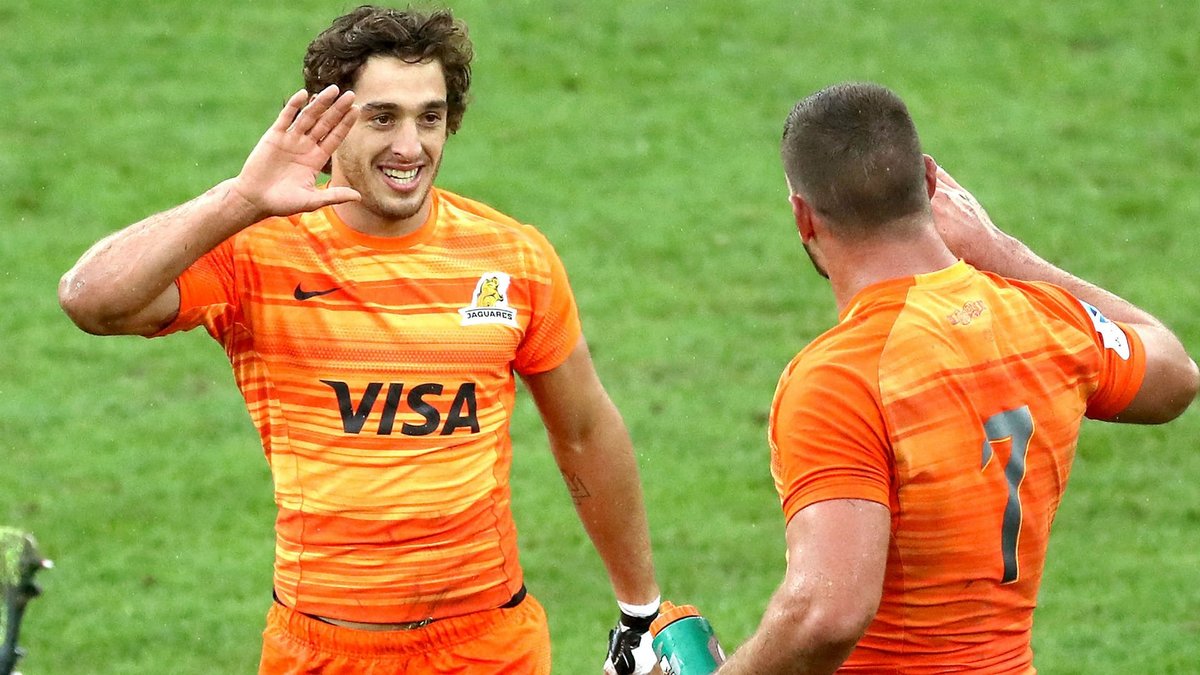Argentina's second franchise gets cut as Jaguares find new home

Perhaps the biggest losers from the relatively sudden reformating of Super Rugby are Argentina and, more specifically, the Jaguares.
Alongside Japan’s Sunwolves, the Jaguares joined Super Rugby in 2016 as the competition’s first Argentinian representation. While it took a couple of seasons for the players to adjust to Super Rugby, the Jaguares achieved a second-place finish in 2019, highlighting the obvious potential the Americas have to offer the rugby world.
In the post-COVID world, however, the Jaguares suddenly found themselves without a home.
In 2022, New Zealand and Australia will join forces to create a new competition which will see the 10 Australiasian sides joined by Moana Pasifika and a Fiji XV.
Meanwhile, South Africa’s four Super Rugby teams will compete with the best sides from Ireland, Wales, Scotland and Italy in a revised PRO14 competition, with the inaugural event coined the Rainbow Cup.
Before COVID reared its head, SANZAAR had already announced the culling of the Sunwolves while the Cheetahs and Kings, who were cut from Super Rugby following 2017, are the other casualties of the new competition structures in the Southern Hemisphere, with their places in the PRO14 being ceded to the stronger South African teams.
It’s the loss of the Jaguares that will have most rugby stakeholders across the world shaking their heads, however. Having made the World Cup knockout stages on three consecutive occasions from 2007 to 2015, the Jaguares’ addition to Super Rugby was long overdue and after finally starting to realise their potential, their future was suddenly stolen from them.
It’s not all doom and gloom for the Argentinians, however, with the side now set to compete in the Super Liga Americana de Rugby, as reported by A Pleno Rugby.
The SLAR was set to kick-off their inaugural season in 2020 right when the severity of the coronavirus pandemic became apparent, and just one round of the South American competition was able to be completed.
The Jaguares will now compete alongside teams from Brazil, Chile, Colombia, Paraguay and Uruguay under the guise of the Jaguares XV – the same team that went undefeated in South Africa’s Currie Cup Division 1 in 2019.
Pumas coach Mario Ledesma has said that he 'couldn't be prouder' of his players who placed second in the Tri Nations after an impressive campaign. #TriNations #AUSvARGhttps://t.co/YO96a21SRd
— RugbyPass (@RugbyPass) December 6, 2020
While it’s good news for the Jaguares brand, it’s a disappointing turn of events for Los Ceibos, the Cordoba-based Argentinian side who were a part of last year’s competition, who have been replaced.
The level of competitiveness is also naturally a step down from Super Rugby and many of the Jaguares players have signed for overseas clubs. Captain Jeronimo de la Fuente, as well as Emiliano Boffelli, Bautista Delguy, Marcos Kremer and Guido Petti, have shifted to France while Agustin Creevy, Santiago Carreras, Matias Orlando and Matias Moroni will play their rugby in England.
There will still be some Argentinian representation in Super Rugby, however, with Julian Montoya, Santiago Medrano, Tomas Lezana, Tomas Cubeli and Domingo Miotti putting pen to paper for the Western Force.
The Force were brought into 2020’s Super Rugby AU competition, alongside Australia’s four existing Super clubs, and will again compete in the 2021 iteration.




























































































